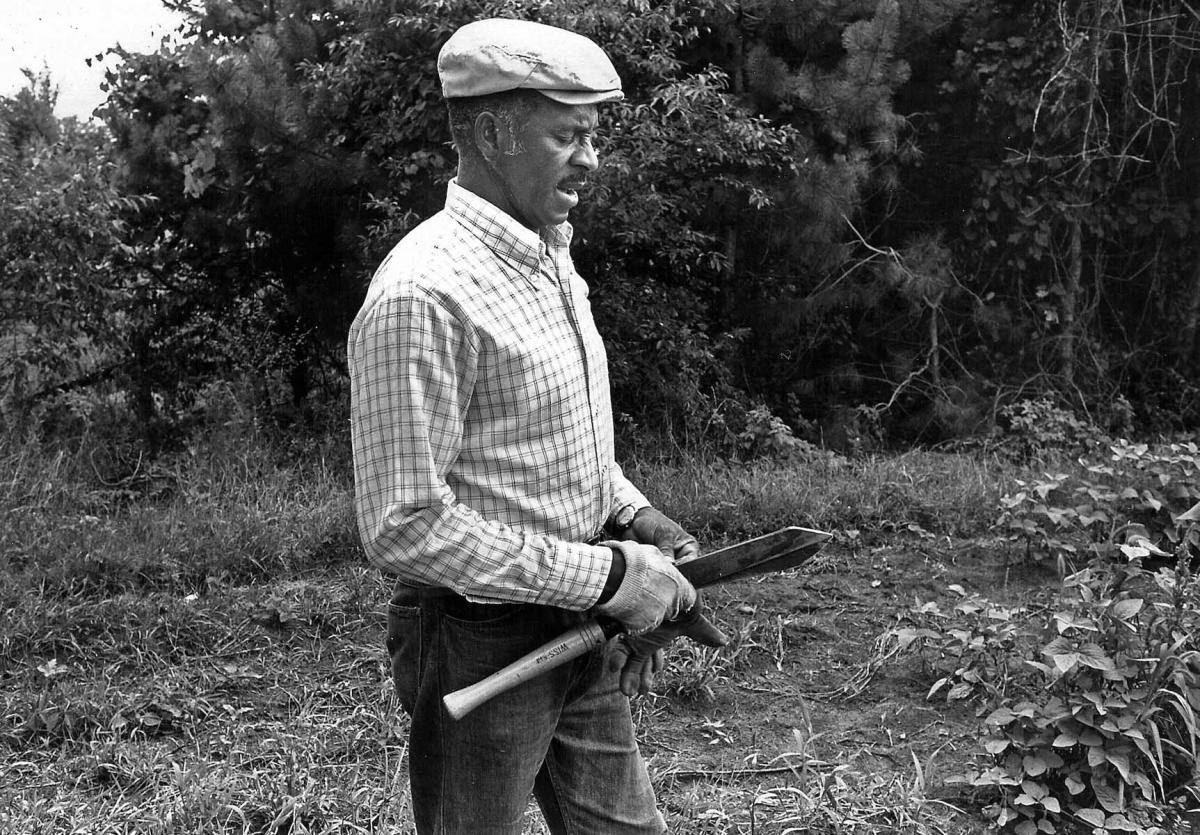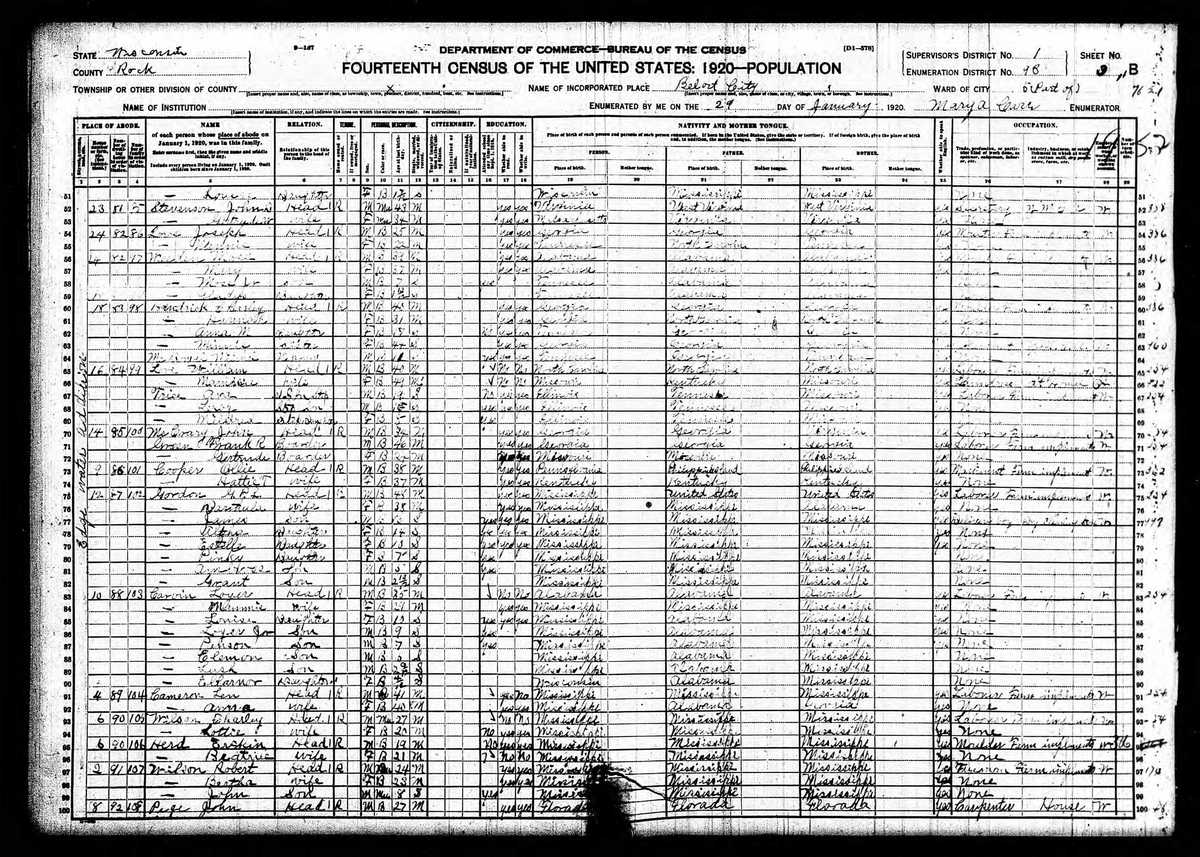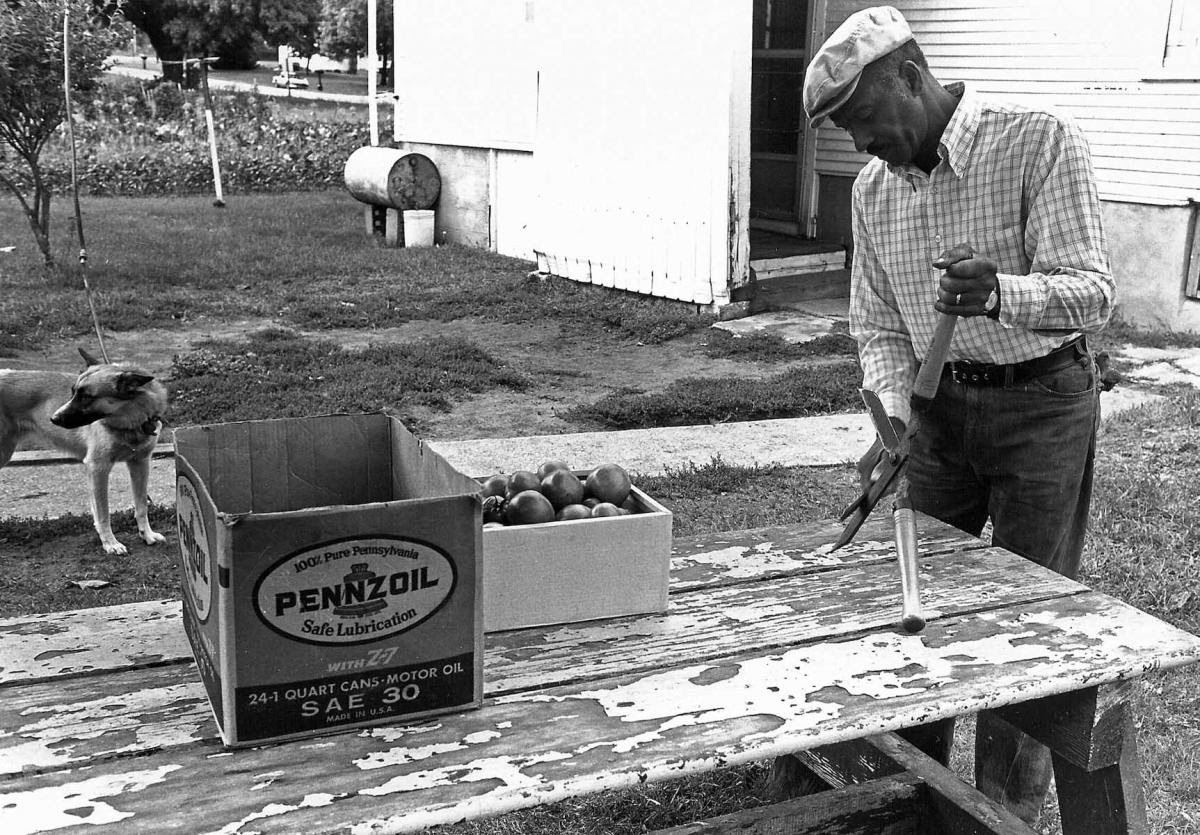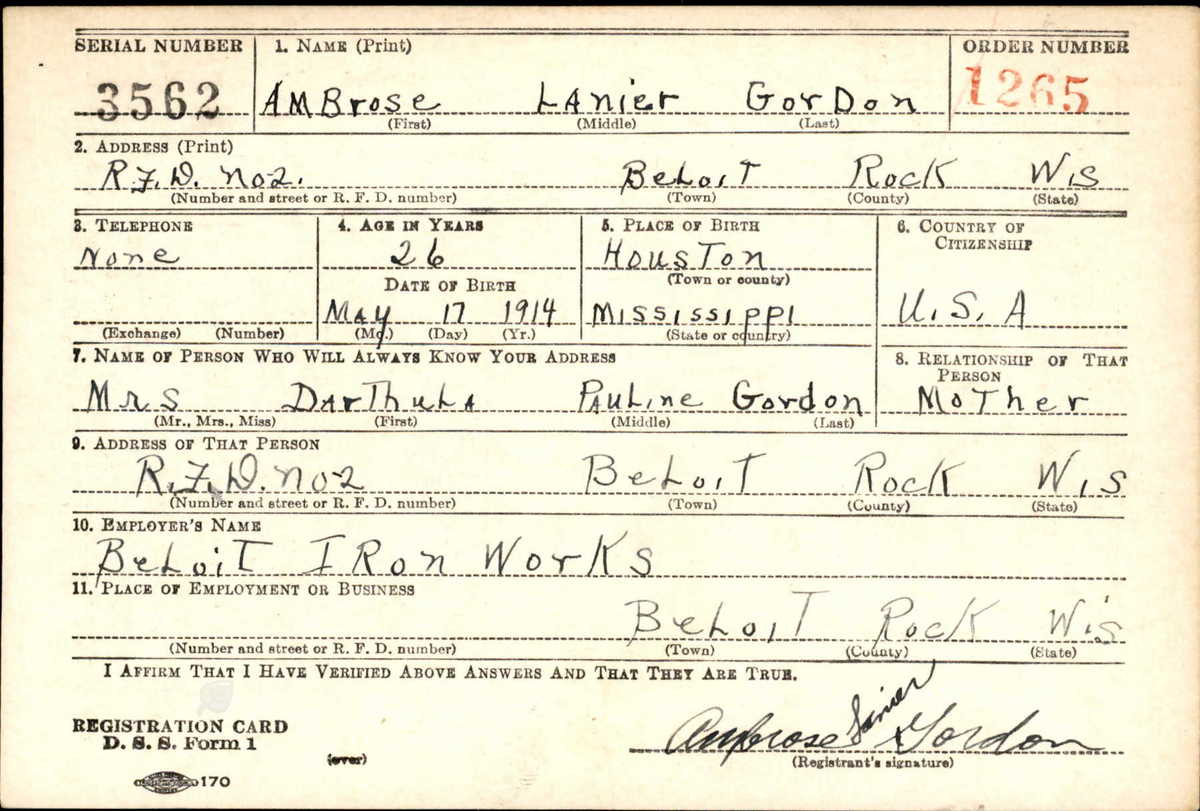Ambrose Gordon
Ambrose Lanier Gordon Sr. was born on May 17, 1914 in Houston, Mississippi to Grant Peter Lee Gordon and Darthula Barbee Gordon. Gordon was the second youngest of seven children born to the couple. In 1917, Ambrose, his parents, and siblings migrated from Houston to Beloit based on the opportunities available in industrial work. The Gordons were one of the first families to settle in the Edgewater Apartments, housing specifically allocated for Black workers of Fairbanks-Morse. Grant Peter Lee Gordon was employed by Fairbanks for four years before moving to a 10-acre plot of farmland in South Beloit at 2208 Shirland Avenue in 1920. The June 30th, 1976 interview of Ambrose Gordon conducted by Clem Imhoff was recorded at that same address. Due to his young age at the time of migration, Gordon received the majority of his education up North, attending Riverview Grade School and graduating from South Beloit High School in 1932. Following graduation, Gordon gained employment at the Beloit Iron Works before being drafted into the U.S. Army in 1940. Gordon spent 36½ years of his career working as a coremaker at the Beloit Corporation before retiring in 1979.
Ambrose Gordon married Ruth Bolton in 1942. It was his first (and only) marriage and her second, after her first husband, Robert Bolton, had passed away. The couple were both originally from the South, with Ruth migrating to Beloit from Pontotoc and Ambrose from Houston, Mississippi. Ambrose and Ruth proceeded to have three kids together and were both deeply involved in many facets of their community. The son of a deacon (Grant Peter Lee Gordon), Ambrose was a member of the New Zion Baptist Church from the age of 13, serving as a Sunday school teacher and church trustee as an adult. Like Ambrose, Ruth was involved with the New Zion Baptist Church, working as a Sunday school teacher for 38 years and church matron, as well.
Beyond the church, Ambrose Gordon was involved with the Beloit Branch of the NAACP as a committee member, secretary, and president between 1953-55. Ambrose’s father had been a charter member of the Beloit NAACP in 1919. Ambrose was further involved with the community, acting as a Boy Scout Master between 1947 and ‘49, a driver for Meals on Wheels between 1981 and ‘82, and a volunteer at Beloit Memorial Hospital. Notably, Ambrose continued the Gordon family’s investment in education by serving on the South Beloit Board of Education between 1964 and 1967. Though Ambrose himself was never an educator, his father had been a teacher prior to the family’s migration North. His sister, Louise Gordon Rhodes, gained a BS in Education from Milwaukee State Teachers College, went on to get a Master’s in Education from the Graduate School of Atlanta University, where she took courses from WEB Du Bois and Langston Hughes, and was a long time teacher in the Milwaukee Public Schools. Suffice to say, Ambrose’s branch of the Gordon family was very involved in education.
Ambrose Gordon passed away at the age of 78 in South Beloit on August 19, 1992. His wife, Ruth, outlived him and passed away on March 10, 2013 at the age of 101 in Janesville. Ambrose Lanier Gordon Sr.’s life story reflects many of the themes that run through lived experiences of the Great Migration generation, as well as the prominence of industry in the Beloit area during the 20th century.



